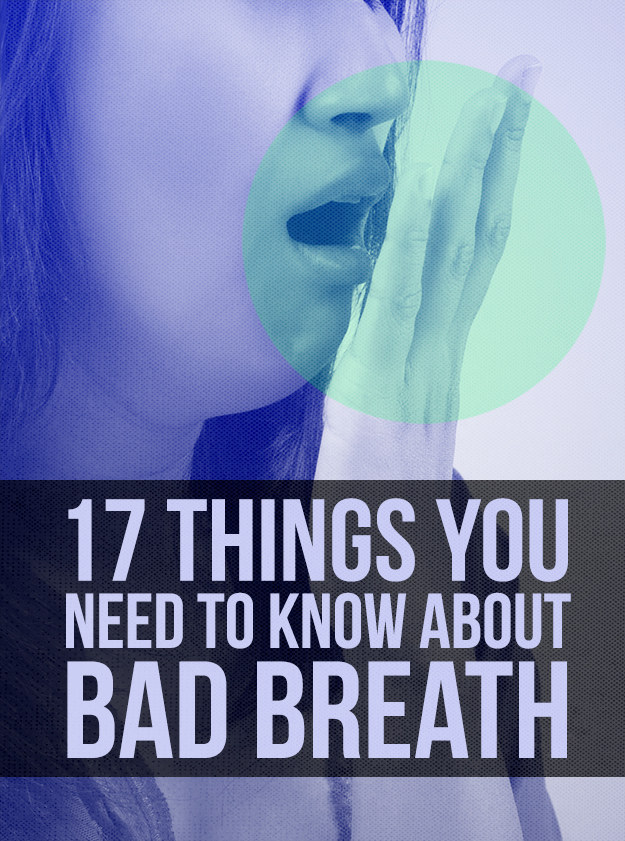Bad breath does not discriminate.
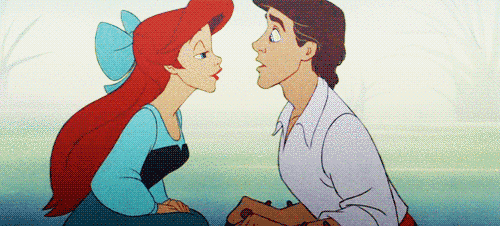
“Anyone can get bad breath. I’ve seen it in men and women from 10 years old to 95 years old and you can develop it at any point in your life,” Dr. Gary Herskovits, D.D.S., of the Fresh Breath Center and Brooklyn Smile in Brooklyn, New York, tells BuzzFeed Life.
It’s pretty common, and often treatable. So you shouldn’t be ashamed if you have bad breath, even though it can seem super embarrassing.
There are two types of bad breath: “garlic breath” and actual halitosis.

“There’s the temporary ‘I just had garlic and onions on my sandwich at lunch’ bad breath, where these pungent flavors linger in the mouth and lungs,” Dr. Matthew Messina, D.D.S., spokesperson for the American Dental Association (ADA), tells BuzzFeed Life.
And then there’s bad breath caused by bacteria in your mouth, which is halitosis. This kind can vary in severity, so it can be something you can fix on your own or something you need to see a doctor about (we’ll get to all that in a bit).
Halitosis is USUALLY from an imbalance of bacteria.
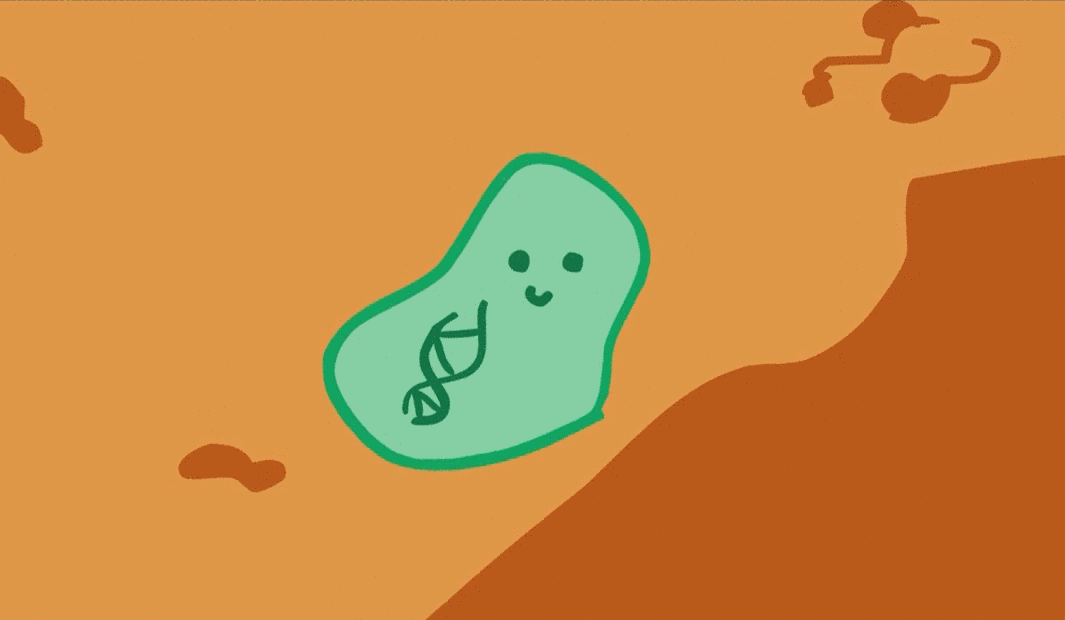
Bad breath which is more severe and chronic is typically due to a problem with the makeup of bacteria in your mouth. When you eat, there’s bacteria in your mouth that break down food and proteins — which is a good thing. “Bad breath is caused by the presence of too much anaerobic bacteria — meaning it does not need oxygen to survive — in the mouth,” Dr. Steven Fox, D.D.S, who has served as faculty at the Harvard School of Dental Medicine and practices in Manhattan, New York, tells BuzzFeed Life.
How can you tell if there’s an imbalance of anaerobic bacteria in your mouth? You can’t. Fox explains that only a dentist can examine the “bacterial flora” of your mouth and determine what is causing the bad breath.
It’s less likely, but sometimes halitosis can be caused by gum disease, gastric reflux, sinus drainage, diabetes, tonsil stones, or other oral diseases, says Messina. If you improve your oral hygiene and and your breath doesn’t get better, or the stank breath begins very suddenly, you should see a dentist who can better look into the problem and suggest a treatment.
People who have halitosis often cannot tell.
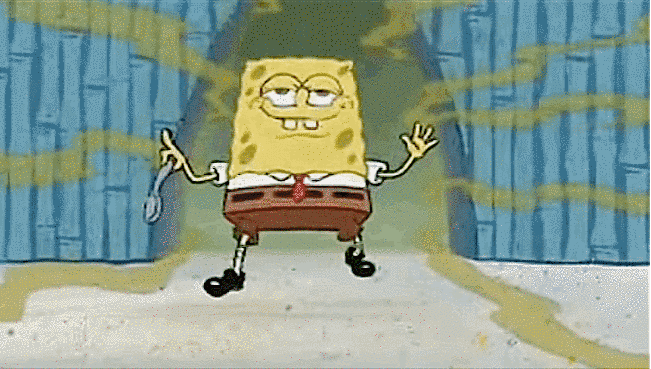
You might smell someone’s breath and think OMG they have to know that their breath is this bad, but that isn’t really the case. “Your sense of smell and taste is based internally, so you become used to your own breath, even if it’s bad,” says Messina. “If halitosis is the baseline, you’re not aware of that because the nose becomes de-sensitized.”
The experts agree that even though it seems literally impossible, you might be doing someone a huge favor by letting them know about their breath in a nice and honest and honest way.
“Don’t be passive aggressive or leave a bottle of Scope on someone’s desk — that’s the wrong approach. If you think you need to tell them, pull someone aside and tell them nicely, don’t publicize it,” Herskovits says.
And that stuff you’re smelling is actually sulfur.
“There’s a whole science behind bad breath. When the anaerobic bacteria breaks down food, it will release these things called volatile sulfur compounds (VSCs), which are essentially the bad odors,” says Fox.
You probably already know what sulfur smells like, and it’s way beyond any lingering garlic or red onion on your breath after last night’s dinner. Herskovits says that most people compare the sulfur compounds which cause bad breath to “rotten eggs or barnyard animals.” Yes, barnyard animals.
You have to physically remove the bacteria to get rid of the smell.
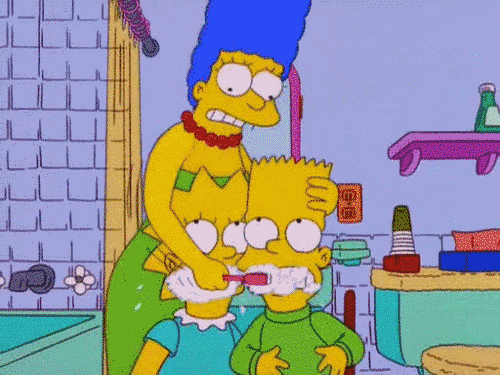
Since the bacteria is anaerobic, it likes to hide out in hard-to-reach parts of the mouth where there’s less oxygen. Messina notes that the bacteria usually get stuck in between teeth and in the crevices of the tongue, so there are mechanical things — flossing and brushing — that you have to do in order to move the bacteria from where it has collected. Any trap for the bacteria to collect, such as a large hole in the mouth, cavities, or even braces and wires, should also be cleaned thoroughly.
This includes any dental appliances that you wear at night or occasionally like retainers, mouth guards, or dentures. According to Herskovits, this plastic can absorb odor, too. He suggests soaking them for a few hours in retainer-cleaning solution or warm water and lemon.
Tongue scrapers can help… but only if used properly.

All three dentists agree that you should ramp up your oral hygiene to the highest level possible, which includes cleaning your tongue before or after your normal brushing routine. How you clean it is up to you (or your dentist), but most people use tongue scrapers from the drugstore, a tooth brush or the tongue cleaner on the back of it, or even a plastic spoon.
Herskovits does note that you should be careful not to scrape too liberally because you can end up scraping off a top layer of skin and cause your tongue to bleed (the same goes for your gums after brushing too hard). He suggests gently “sweeping” your tongue with these tools to remove the bacteria.
So what if you have a strong gag reflex? “A lot of people don’t like it because it makes them gag, but it should make you gag, because that means you’re reaching the back and cleaning the entire tongue,” says Messina. However, he does note that if you can’t stand gagging you should try sticking your tongue out and holding onto the tip of it with your other hand, which helps stabilize the tongue while you brush or scrape it.
Stank breath can also be caused by not enough saliva.

Saliva helps clean your mouth out by flowing and washing around food particles and bacteria. And in most people, your spit has something in it which helps to control the sulfur compounds and neutralize the bad odor, says Herskovits. So if you have bad breath, it could be a problem with your saliva.
Or it could be a problem with your saliva flow, salivary glands, or how you breathe, which ends up giving you dry mouth. “A typical individual has normal salivary flow… but some things can change salivary flow and can dry out mouth, such as certain medications, radiation and chemo in cancer patients, or some autoimmune diseases like Sjögren’s syndrome,” explains Fox.
So drinking water frequently to keep your mouth pleasantly watery and staying hydrated all day is a must. A little drool never hurt anybody.
Wretched morning breath is totally normal.
When you sleep, your body slows down as well as your salivary flow, which doesn’t help if you breathe with your mouth open for eight hours. “Since these sulfur-producing bacteria thrive in a dry environment, they come out when you sleep and that’s why your breath smells bad after waking up,” Herskovits explains.
Obviously, morning stank breath can be worse for some than others — but it’s still a natural product of sleeping, so you can’t really end it. Some products can help salivary flow or supplement your nighttime dry mouth with artificial saliva (seriously). And make sure you always floss, brush, and rinse after your last meal before bed and in the morning, because the bacteria have increased overnight.
What you eat can cause bad breath — and not just the garlic.
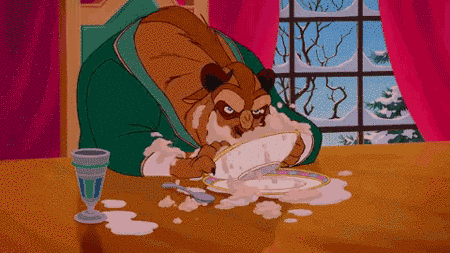
When it comes to nutrition, keeping your breath fresh doesn’t mean strictly avoiding aromatic foods and spices. What you eat can help prevent tooth decay, gum disease, and gastroenteritis, which are all associated with bad breath.
Fox explains, “Preventing bad breath includes eating a balanced diet, with three meals a day, and having a good balance of protein, fruits, and vegetables. It’s not a quick fix — but if you have bad breath, you can adjust your diet to look for improvement or identify problem foods.”
Mouthwash can mask the problem, but it won’t fix it.
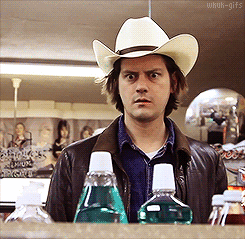
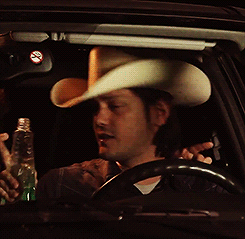
As mentioned before, it’s the mechanical movements like brushing and flossing that will actually remove the bad breath bacteria. Mouthwash and other topical solutions can help to wash the stuff away after cleaning, but they really only mask the the problem. They should never be used as a replacement for proper oral hygiene.
And actually, it could even make it worse. “If your mouthwash has alcohol, your breath might be fresh for 30 minutes from the added mint flavors, but then the alcohol will dry your mouth out even more, which only makes a better environment for the odor-producing bacteria,” says Herskovits. If you do use mouthwash, try alcohol-free or antibacterial rinses, which don’t dry out your mouth as much, but act directly to kill odor-causing bacteria and fight plaque.
Smoking and drinking can make your breath reek.
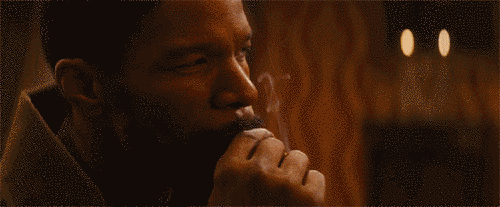
Not everyone’s breath is affected by alcohol or cigarettes, but if you do have bad breath, they’re only making the problem worse. “If a patient with very bad breath smokes half a pack a day and drinks alcohol four days a week — I’d say that’s very obvious stuff not to do,” Herskovits says. “They both dry out your mouth, and smoking increases your risk of gum disease and other oral problems, which are associated with halitosis.” Plus, cigarettes reek in general, so obviously they’ll do a number on your breath. Similar to nutrition, adjusting your drinking and smoking habits is a good way to look for improvement in your breath.
Sugar can make your breath pretty foul, too.
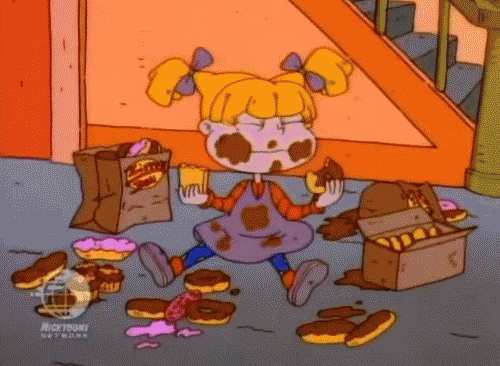
Not only does sugar cause cavities and rot your teeth, but it can actually help feed the bacteria that causes bad breath, Herskovits explains. Cutting down on sugary foods and simple carbohydrates will help, so you might want to swap your usual snack of chips or cookies for an apple if your breath stanks. Additionally, if you have bad breath and constantly chew gum or pop mints, they should always be sugar-free.
And obviously, coffee breath is a thing because it dries out your mouth and leaves a pretty pungent odor.
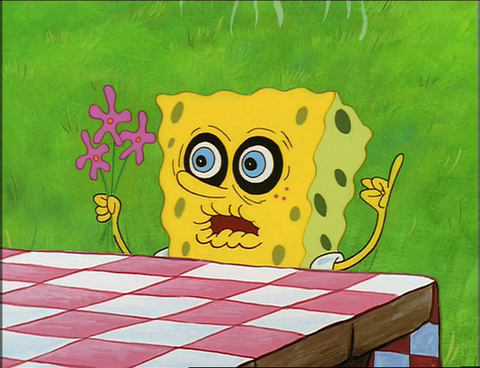
The caffeine and in coffee (and anything, really) can dry out your mouth, inviting all that bacteria to come hang out and make your breath stank. Add to that the fact that coffee has a lingering smell, and you’ve got latte breath. Not to mention, it can do a great job of staining your teeth.
Halitosis may even cause cause anxiety or depression.
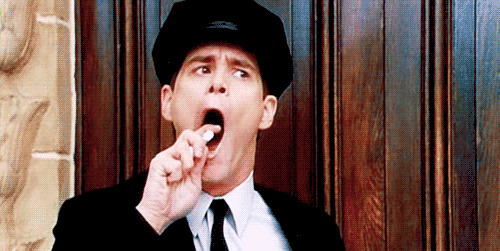
It can be a very unpleasant and embarrassing condition. Herskovits notes, “You’ll get a lot of negative reactions from people. They’ll brush their nose, step back, or whisper to a neighbor after you speak. Most people are very shy and don’t go out much, it can get very lonely.” But that doesn’t have to be the case.
It’s important to be more aware of the way you treat people with halitosis by understanding the condition and that it’s not always something a pack of gum will fix. “It’s a social problem, really. Maybe even a social disease,” Herskovits says.
With more severe halitosis, quick fixes probably won’t work.
Anyone can get bad breath from a buildup of bacteria, but it’s usually solved with optimal oral hygiene and a combination of a few different products. If you have more severe halitosis, you’ve probably tried everything and it hasn’t really worked.
“If you find one or two things that help your bad breath, then that’s great,” says Fox. “But for people with severe halitosis, all the over-the-counter stuff is the same, because none of it works. Then you see commercials from companies for even more costly products, which promise the world to consumers and typically deliver nothing.” It is all temporary fix for a much more complex problem.
If you think you have halitosis, go to a dentist.
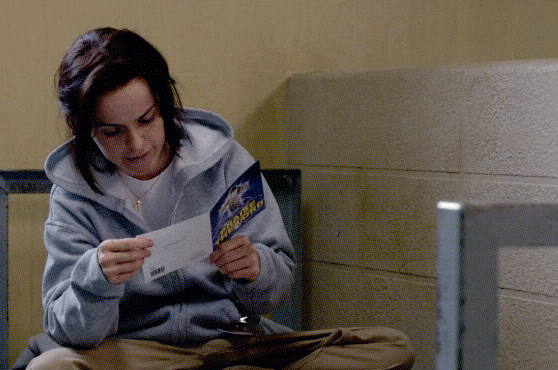
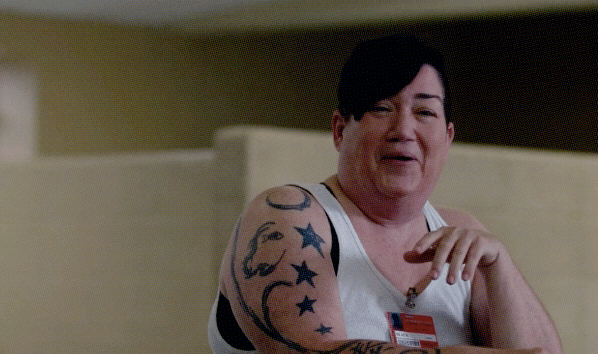
“The biggest insight I have is that there’s no magic cure for halitosis… you can keep trying new stuff, but you need to see a dentist,” Fox says. Seeing a dentist is not a quick-fix, but they can assess the situation and prescribe a variety of proprietary treatment plans.
Treatment is usually non-invasive and can include extensive cleaning sessions or prescription rinses and toothpaste to remove all that tricky bacteria from the mouth or help a saliva problem. The general idea is that a professional can help you get back to square one, to the point where you can maintain normal breath with proper oral hygiene.
You don’t have to live with stank breath forever!
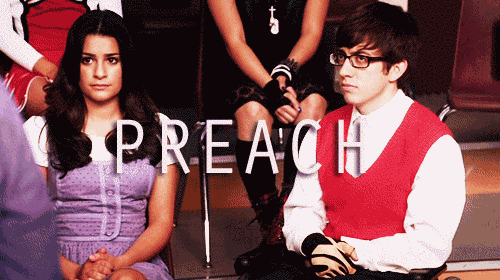
It is a completely treatable condition, and you can say goodbye to stank breath as long as you see a dentist for treatment and take excellent care of your mouth. As Herskovits says, “Marriages and jobs can be saved… you can get the elusive second date with fresh breath!”










